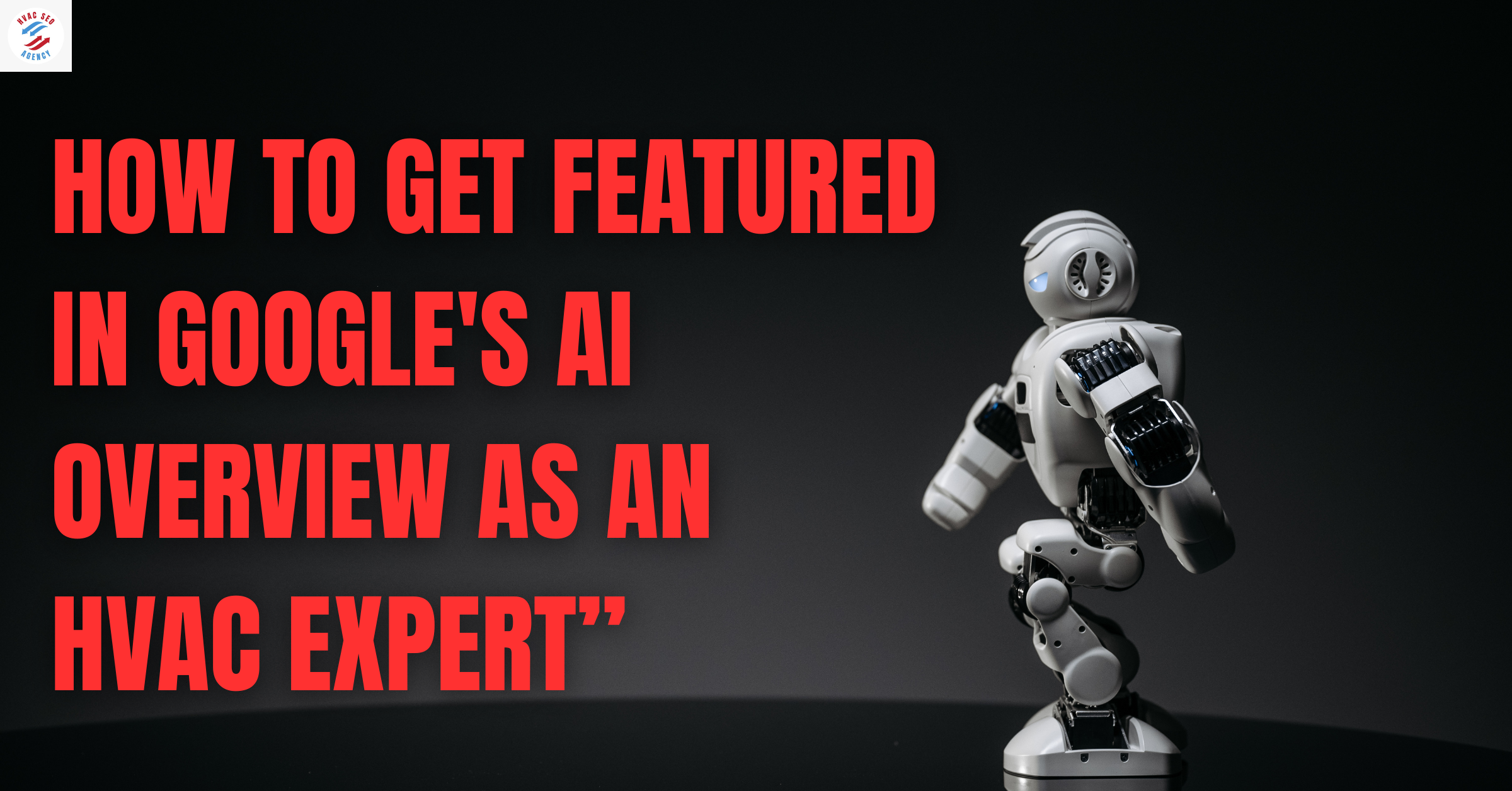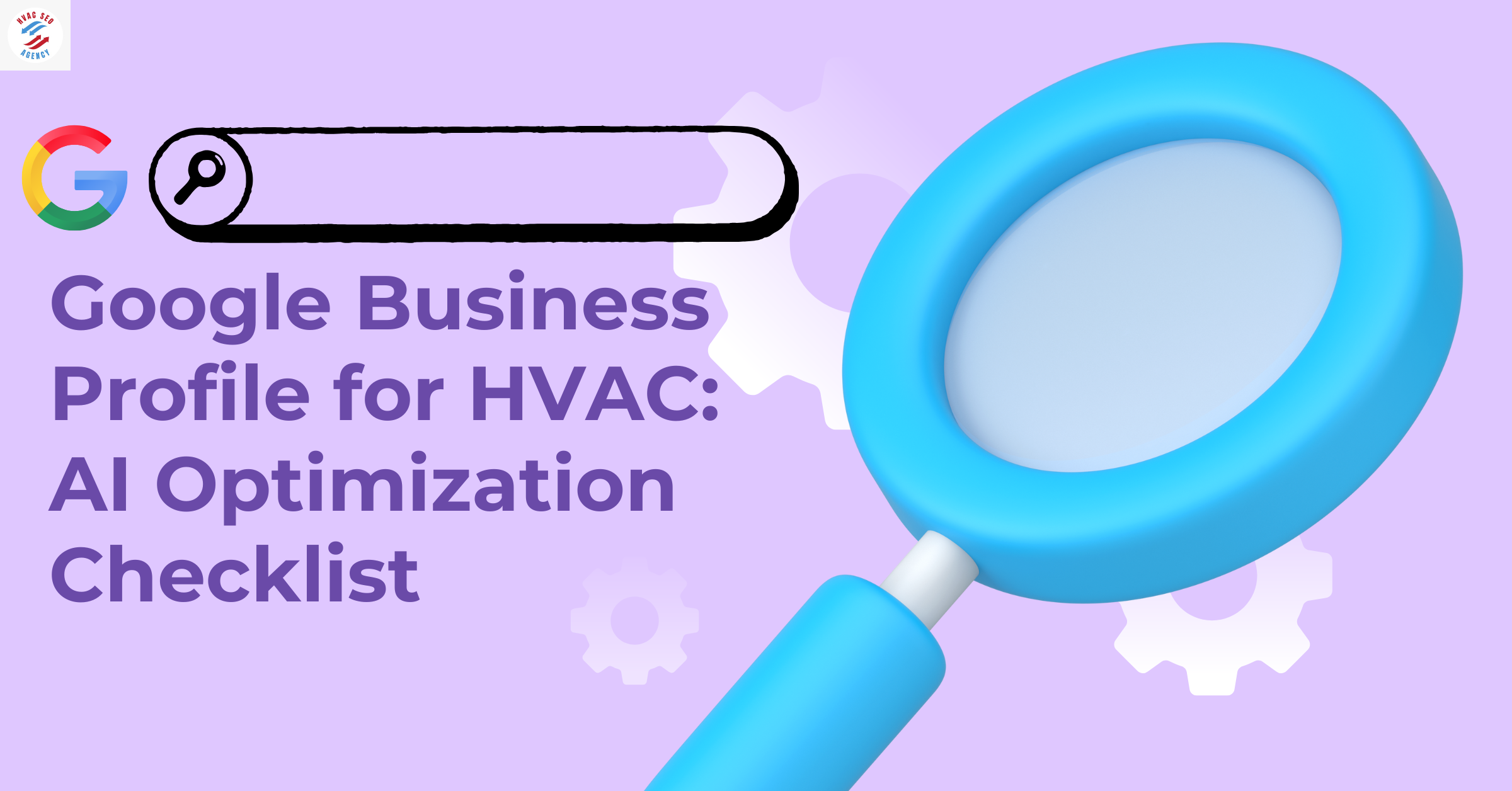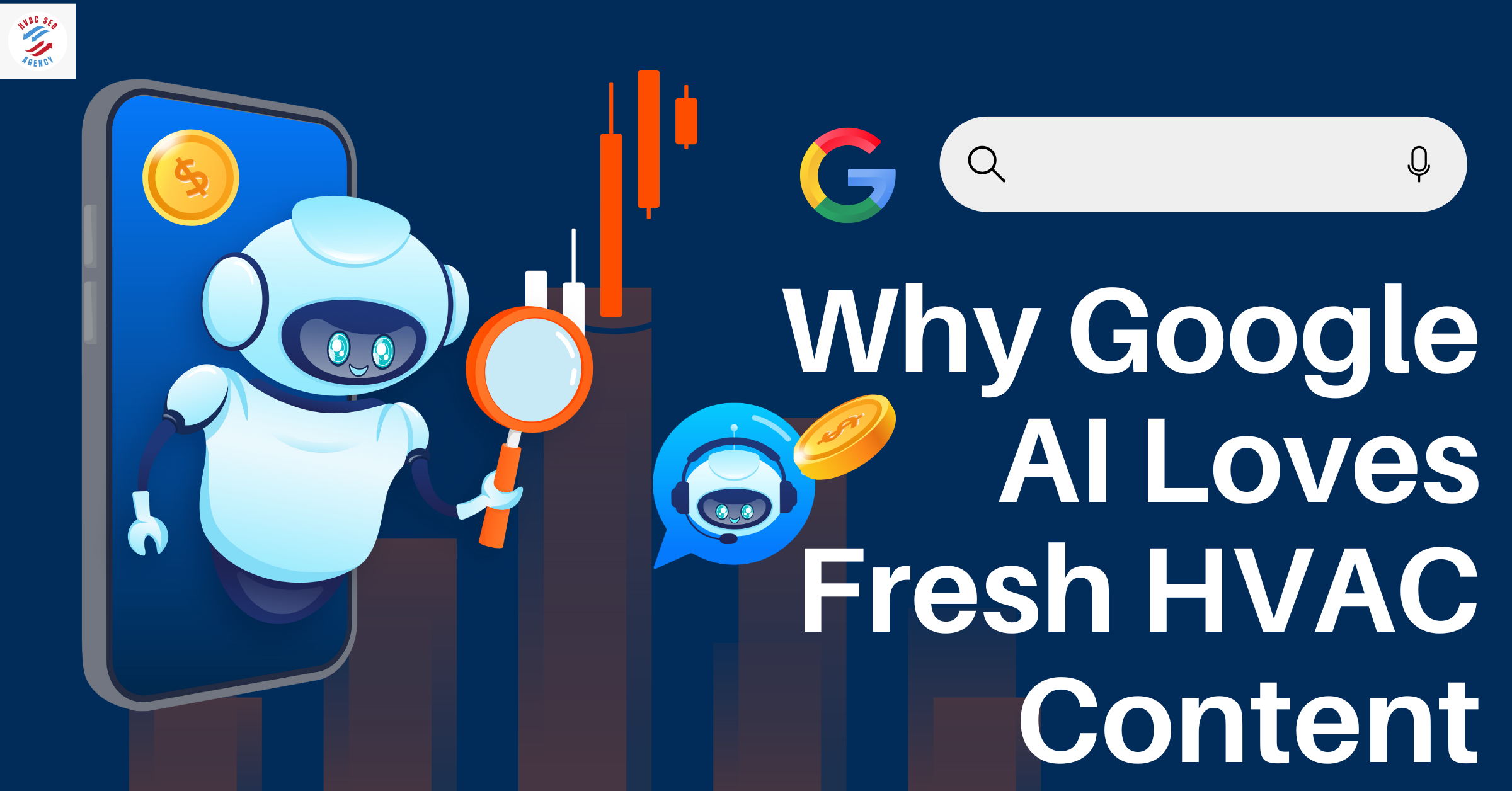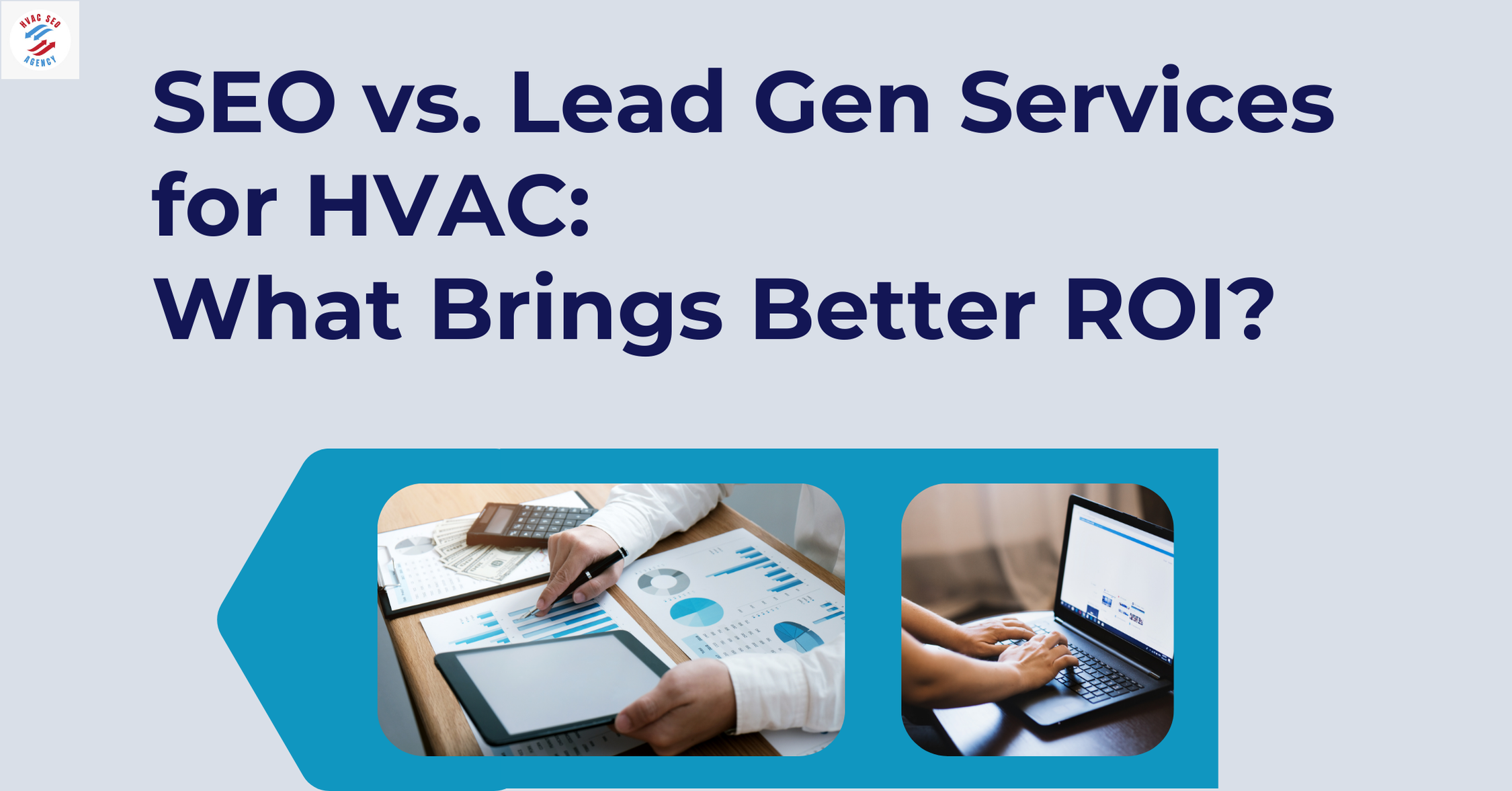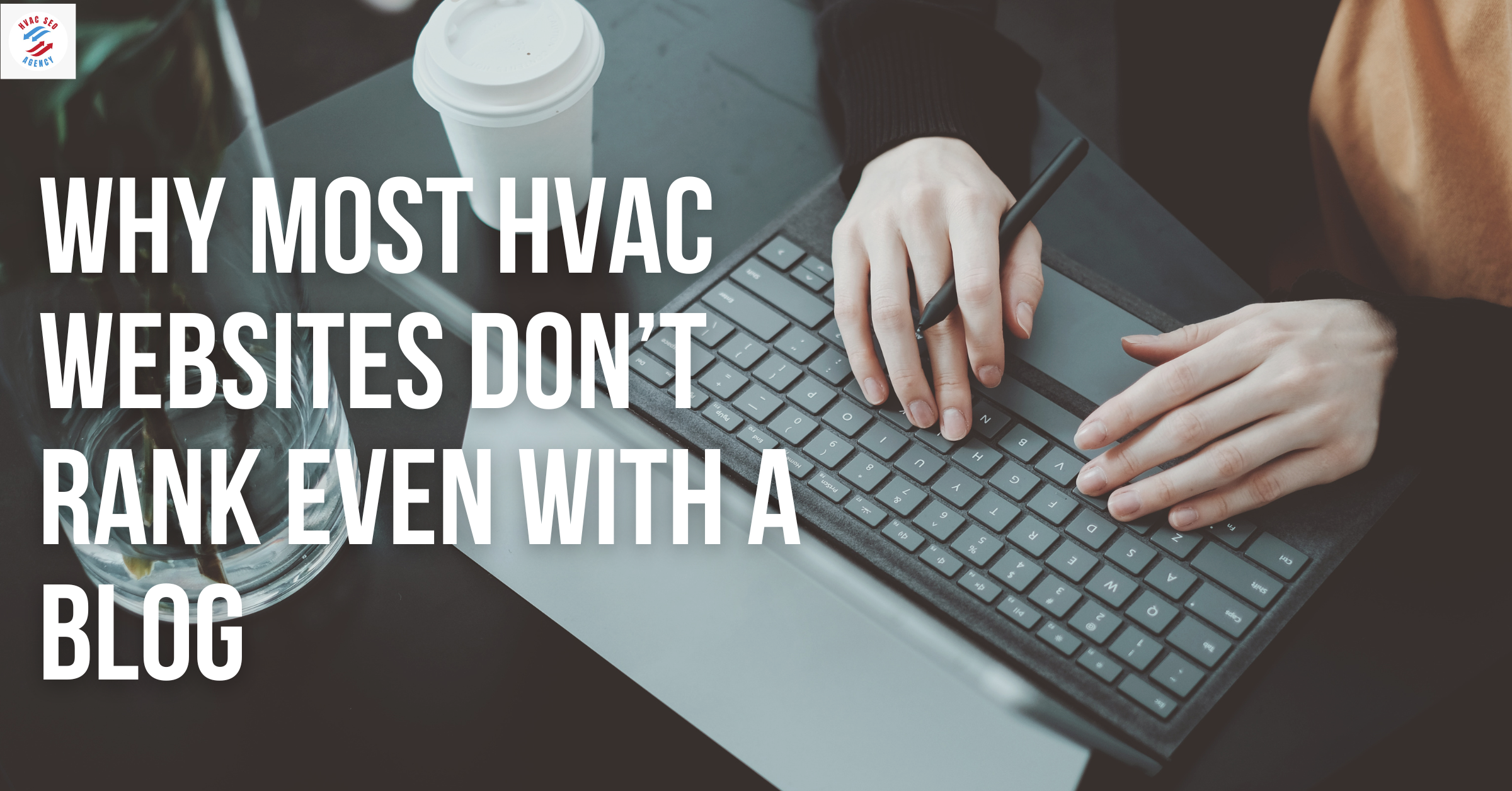Common SEO Scams Targeting HVAC Companies—And How to Spot Them
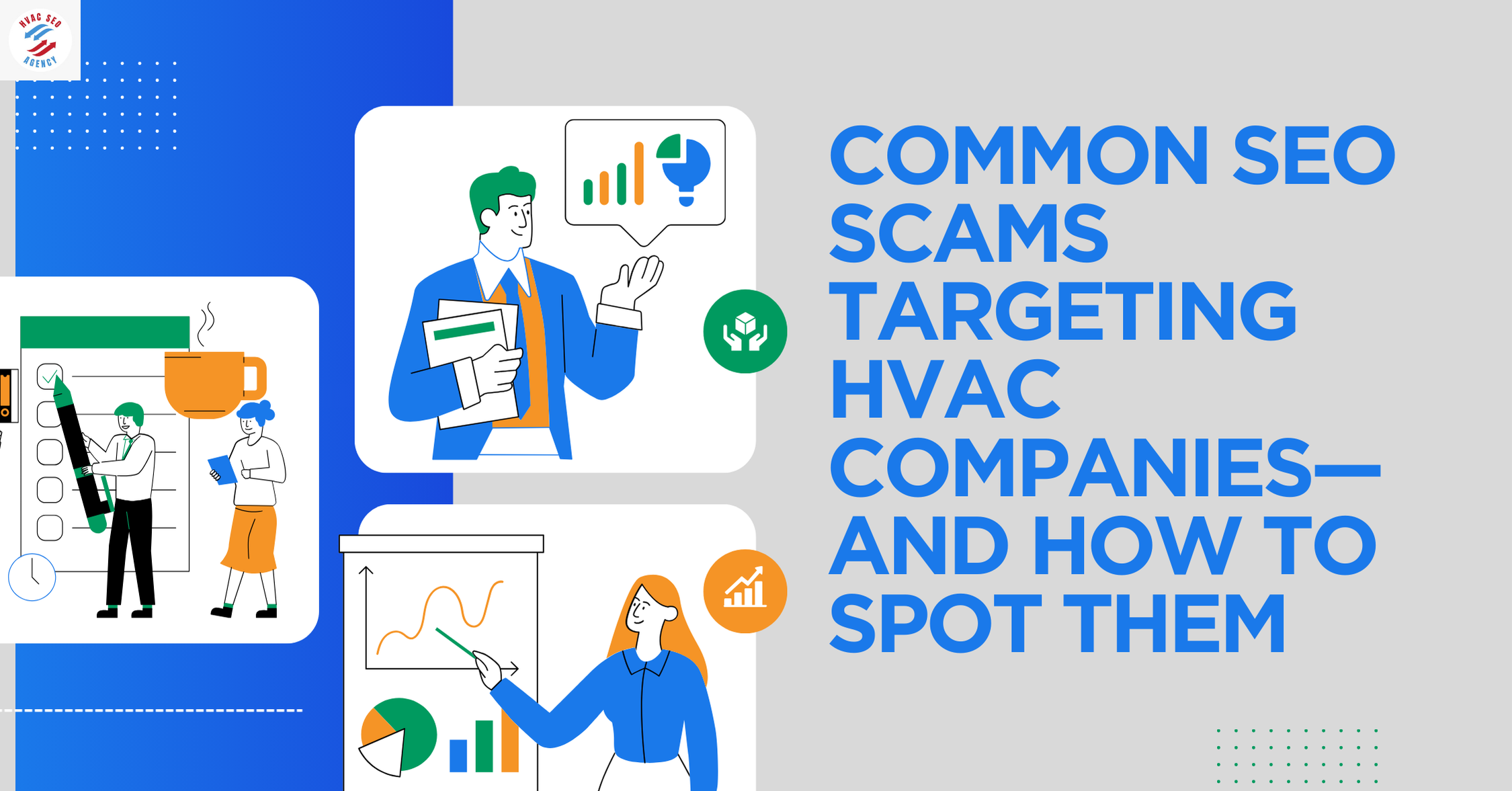
Section 1: Why Choosing an Affordable HVAC SEO Agency Matters
For HVAC contractors, the decision to invest in SEO can feel risky especially when scams and overpriced services are common. This is where an Affordable HVAC SEO Agency proves its value. By combining proven local SEO strategies with cost efficiency, these agencies help HVAC businesses capture more qualified leads without overspending on ads.
According to recent U.S. small business marketing research, 97% of consumers now use the internet to find local services, and HVAC is no exception. That means your visibility in search results particularly on Google Maps—can make or break your lead pipeline. An Affordable HVAC SEO Agency ensures you’re not just showing up but doing so in a way that converts browsers into booked jobs.
The Best HVAC SEO Marketing Services in Baltimore go a step further by tailoring campaigns to the city’s market realities. Baltimore’s HVAC market is competitive but also seasonal, with peaks during extreme summer and winter months. This requires targeted Google My Business optimization, location-based content marketing, and conversion-focused website design to capture customers exactly when they’re searching.
U.S. and Baltimore HVAC Marketing Stats
This bar chart compares the percentage of consumers who use the internet to find local services (97%) against the average lead cost reduction (35%) achieved by working with an Affordable HVAC SEO Agency.
Graph 1.2 – Cost per Lead in Major U.S. Cities (HVAC Industry)
This comparison shows how Baltimore’s HVAC cost-per-lead compares to other U.S. cities like NYC and Miami.
Section 2: Understanding the Rise of HVAC SEO Scams in the U.S. Market
The growing digital dependency of HVAC companies has created new opportunities for lead generation but it has also fueled the rise of HVAC SEO scams. These scams prey on contractors who lack in-depth SEO knowledge, promising unrealistic rankings, instant traffic, or guaranteed leads without transparency in strategy or reporting.
In the U.S., fraudulent SEO practices targeting service-based businesses including HVAC contractors have surged over the last five years. The Federal Trade Commission (FTC) reported that small business scams involving digital marketing cost victims over $4.8 billion in 2025, with HVAC-specific fraud growing steadily due to its seasonal lead demand.
A significant factor driving HVAC SEO scams is the gap between technical SEO understanding and sales-driven promises. Many scammers exploit this by offering low-cost “SEO packages” that focus solely on vanity metrics (like impressions) rather than conversions, leading to wasted marketing budgets.
Common Red Flags of HVAC SEO Scams
Guaranteed #1 Rankings on Google: Search algorithms change constantly; no ethical agency can guarantee this.
Lack of Transparent Reporting: Scammers avoid sharing metrics like conversion rates or lead quality.
One-Size-Fits-All Packages: Effective SEO is market-specific; Baltimore’s HVAC keyword strategy differs from Miami’s.
No Local Optimization: Many scams ignore Google Business Profile optimization, the lifeblood of local HVAC lead generation.
U.S. HVAC Scam Impact Statistics
A line chart showing annual increase in reported HVAC SEO scams, with a sharp spike post-2025 due to pandemic-driven online marketing dependency.
Graph 2.2 – Breakdown of Common HVAC SEO Scam Tactics
A pie chart showing scam tactic distribution: 38% fake ranking guarantees, 27% bogus backlinks, 21% non-local SEO packages, 14% fake traffic reports.
Section 3: How HVAC Digital Fraud Targets Contractors Through Deceptive Marketing
HVAC digital fraud goes beyond misleading promises; it's a coordinated set of tactics that manipulate online systems, advertising platforms, and analytics to extract money from contractors without delivering real results. While HVAC SEO scams focus mainly on organic search deception, HVAC digital fraud covers the broader digital marketing ecosystem, including paid ads, fake lead generation, and social media schemes.
A 2025 report by the Association of Certified Fraud Examiners (ACFE) found that digital marketing fraud costs small U.S. businesses an estimated $13.8 billion annually, with HVAC contractors particularly vulnerable due to seasonal demand spikes and competitive bidding for leads. Baltimore contractors, for example, face intense PPC competition in summer months, making them prime targets for fraudulent ad management agencies.
Common Types of HVAC Digital Fraud
Click Fraud in PPC Campaigns: Bots and click farms drive up ad spend without producing real leads.
Fake Lead Lists: Purchased contact lists containing outdated, non-local, or non-existent customer data.
Ad Budget Diversion: Agencies inflating spend reports and keeping the difference.
Non-Transparent Subcontracting: Passing work to cheap offshore vendors without disclosure, resulting in poor quality.
U.S. HVAC Digital Fraud Statistics
A line graph showing gradual rise from 9% in 2019 to 18% in 2025, illustrating increasing sophistication of fraud tactics.
Graph 3.2 – Breakdown of HVAC Digital Fraud Losses by Category
A pie chart showing: 42% click fraud, 25% fake leads, 20% ad budget diversion, 13% non-transparent subcontracting.
Section 4: Financial Impact of HVAC SEO Scams and HVAC Digital Fraud on U.S. Contractors
The cost of HVAC SEO scams and HVAC digital fraud extends far beyond the initial financial loss. For many HVAC businesses, these scams drain marketing budgets, disrupt lead pipelines, and erode trust in legitimate marketing services. Contractors often find themselves locked into long-term contracts with little to no performance guarantees, making recovery slow and expensive.
According to the Better Business Bureau (BBB), small U.S. service-based businesses lost an average of $9,840 per scam incident in 2025. In the HVAC sector, losses are often higher because scammers target seasonal peaks, where lead value is at its highest. A single fraudulent campaign can mean missing out on hundreds of potential jobs during the busiest months.
The compounding effect of repeated fraud can be devastating:
Lower search rankings due to spammy backlinks or black-hat tactics.
Wasted ad spend from click fraud or fake lead lists.
Loss of competitive advantage during peak demand seasons.
Reduced customer trust when marketing missteps damage the brand’s online reputation.
Financial Impact Statistics
A bar chart showing $9,840 average loss for all SMBs compared to $11,200 for HVAC businesses.
Graph 4.2 – Seasonal Revenue Loss from Scam-Related Campaign Failures
A line graph illustrating average lost revenue during summer and winter peaks for scammed HVAC businesses, with values ranging from $18,000 to $25,000 per season.
Section 5: Real-Life Case Studies of HVAC SEO Scams and HVAC Digital Fraud
Case studies offer a clear, evidence-based view of how HVAC SEO scams and HVAC digital fraud actually play out in the U.S. market. By examining real incidents, HVAC contractors can better recognize warning signs and understand the cost of falling victim to such schemes.
Case Study 1 – Baltimore Contractor Hit by Fake SEO Guarantee
A mid-sized Baltimore HVAC business signed a $1,500/month contract with an agency promising guaranteed #1 Google rankings in 30 days. Within two months, rankings temporarily spiked due to black-hat tactics, but the site was later penalized by Google, dropping out of the top 100 results. The penalty led to a 42% drop in monthly leads and nearly $19,000 in lost seasonal revenue.
Red Flags Missed: Unrealistic ranking guarantee, no transparency in backlink sourcing, lack of detailed monthly reports.
Case Study 2 – HVAC Digital Fraud via Click Farms
A Texas-based HVAC company invested $3,000/month in Google Ads. Within the first 45 days, ad performance metrics looked strong, but lead quality was near zero. Further investigation revealed 16% click fraud from overseas click farms. Estimated loss: $6,200 in wasted ad spend, plus missed opportunities during the hottest part of the season.
Red Flags Missed: No IP filtering, lack of click fraud detection software, absence of conversion tracking tied to real customer calls.
Case Study 3 – Fake Lead List in Florida HVAC Market
A Florida contractor purchased a “verified” lead list for $800, expecting to fill a slow winter month with service calls. Over 70% of the contacts were invalid, and many addresses were outside the service area. No refunds were issued.
Red Flags Missed: No lead source verification, no performance-based payment structure, poor contract terms.
U.S. Case Study Data Summary
A bar chart comparing dollar losses from each case study.
Graph 5.2 – Percentage of Invalid or Lost Leads from Scam Cases
A bar chart showing Baltimore (42% lost leads), Texas (N/A for PPC), and Florida (70% invalid leads).
Section 6: How to Identify HVAC SEO Scams Before They Cost You
Preventing losses from HVAC SEO scams and HVAC digital fraud starts with early detection. The most effective contractors develop a vetting checklist to evaluate every SEO pitch, proposal, or marketing offer before signing. This proactive approach not only safeguards budgets but also ensures marketing partnerships deliver measurable ROI.
According to a 2025 BrightLocal SMB Trust Survey, 61% of small businesses that fell for marketing scams admitted they did not verify credentials or request detailed campaign plans beforehand. The HVAC industry’s urgency for seasonal leads often pushes contractors to make quick decisions, which scammers exploit.
Proven Warning Signs of HVAC SEO Scams
Unrealistic Guarantees: Claims of “#1 Google ranking in 30 days” or “500% traffic growth guaranteed.”
No Local Strategy: Failure to discuss Google Business Profile optimization or local keyword targeting.
Lack of Reporting: Refusal to share monthly reports detailing traffic sources, lead quality, and conversion rates.
Suspiciously Low Pricing: Packages significantly below industry averages without clear explanation.
Opaque Contracts: No opt-out clauses, vague deliverables, and unclear ownership of marketing assets.
U.S. SMB Scam Prevention Statistics
A line chart showing the percentage of businesses detecting scams within 1–3 months (early) vs. 4–6 months (late).
Graph 6.2 – Cost Savings from Early Scam Detection
A bar chart comparing average loss when scams are caught early ($4,700) vs. late ($11,200).
Section 7: Role of an HVAC SEO Agency in Protecting Contractors from Scams and Digital Fraud
The right HVAC SEO agency does more than improve rankings and generate leads; it actively safeguards contractors against HVAC SEO scams and HVAC digital fraud by implementing transparent, accountable, and ethical marketing practices. This protection is critical for small to mid-sized HVAC businesses that cannot afford repeated losses.
According to a 2025 Clutch Agency Performance Report, businesses working with verified, specialized SEO agencies saw a 72% lower risk of falling victim to digital marketing scams compared to those hiring freelancers or unverified vendors.
How a Reputable HVAC SEO Agency Protects You
Clear Reporting & Metrics: Monthly reports that show traffic sources, keyword rankings, call tracking, and ROI.
Contract Transparency: Clear deliverables, opt-out clauses, and ownership of digital assets.
Local Market Focus: Custom campaigns for city-specific competition (e.g., Baltimore vs. Miami HVAC markets).
Fraud Prevention Tools: Use of click fraud detection, lead validation software, and Google Ads IP exclusions.
Ongoing Education: Teaching HVAC business owners how to spot scam offers and misleading proposals.
U.S. Agency Protection Statistics
A bar chart comparing scam risk percentage for businesses using verified agencies (28%) vs. non-verified vendors (100% baseline).
Graph 7.2 – ROI Improvement with Reputable HVAC SEO Agencies
A line chart showing ROI improvement trend from 0% baseline to 38% over the first 12 months of working with a reputable agency.
Section 8: Cost Comparison – Ethical HVAC SEO vs. Scam Operations
One of the most effective ways to understand the impact of HVAC SEO scams and HVAC digital fraud is to compare them side-by-side with ethical, reputable HVAC SEO campaigns. While scam operations often advertise lower upfront prices, the long-term cost per lead, revenue loss, and brand damage far outweigh any initial savings.
According to a 2025 HubSpot Marketing ROI Report, ethical SEO campaigns for HVAC businesses in the U.S. produce 3–5x more qualified leads than scam-driven campaigns. Meanwhile, scam operations may deliver temporary spikes in traffic but fail to convert into paying customers due to poor targeting, fake leads, or black-hat tactics that eventually harm rankings.
Key Cost Differences
Upfront Price: Scams tend to undercut market rates to lure contractors, sometimes offering packages as low as $300/month compared to $1,200–$1,800/month for a reputable agency.
Cost per Lead (CPL): Ethical campaigns average $20–$50 per lead; scams often exceed $150 per legitimate lead once fake traffic is removed from the equation.
ROI: Ethical agencies show positive ROI within 4–6 months; scams frequently result in net losses.
Longevity: Ethical campaigns build sustainable search visibility; scams often cause ranking penalties requiring costly recovery.
U.S. HVAC SEO Cost Comparison Data
A bar chart comparing ethical campaigns ($20–$50 CPL) vs. scam campaigns ($150+ CPL).
Graph 8.2 – ROI Timeline: Ethical HVAC SEO vs. Scam Campaigns
A line chart showing ethical SEO ROI rising steadily over 6 months, while scam SEO ROI remains flat or negative.
Section 9: Essential Questions to Ask Before Hiring an HVAC SEO Agency
Asking the right questions before signing a contract is one of the most effective ways to avoid HVAC SEO scams and HVAC digital fraud. Contractors who take the time to vet agencies thoroughly are far less likely to face wasted budgets, poor results, or fraudulent activities.
According to a 2025 BrightLocal Agency Vetting Study, HVAC businesses that followed a structured pre-hire questionnaire reduced their risk of scam exposure by 68% compared to those who skipped due diligence.
The 10 Must-Ask Questions for Any HVAC SEO Agency
What’s Your Track Record with HVAC Businesses? – Request specific case studies and references.
Do You Offer Local SEO Services? – Ensure they optimize Google Business Profile and target service-area keywords.
What Metrics Do You Report On? – Look for transparency in traffic sources, conversion rates, and cost per lead.
Can You Provide a Sample Report? – See exactly how they track results.
What’s Your Link-Building Strategy? – Avoid agencies using black-hat or spammy backlinks.
How Do You Prevent Click Fraud? – Especially important for PPC campaigns.
Do You Guarantee Rankings? – Any “guaranteed #1” claim is a red flag.
How Long Before We See ROI? – Ethical agencies will give realistic timelines (4–6 months).
Do We Own the Marketing Assets? – Ensure the website, content, and accounts belong to you.
Can You Share Client Retention Rates? – High churn may indicate poor results or customer dissatisfaction.
U.S. Agency Vetting Impact Statistics
A bar chart comparing scam risk for vetted agencies (32%) vs. non-vetted hires (100% baseline).
Graph 9.2 – ROI Improvement from Well-Vetted HVAC SEO Agencies
A line chart showing ROI increase from 0% baseline to 34% within 6 months when using a vetted agency.
Section 10: Long-Term Strategies to Safeguard Your HVAC Business from SEO Scams and Digital Fraud
Avoiding HVAC SEO scams and HVAC digital fraud is not a one-time task; it requires a long-term, proactive strategy. The most successful HVAC contractors treat scam prevention as part of their overall marketing operations, just like budgeting or lead tracking.
A 2025 Moz Local Marketing Risk Report found that HVAC companies with formal fraud-prevention measures reduced their exposure to scam-related losses by 74% over a three-year period.
Core Long-Term Safeguards for HVAC Businesses
Partner Exclusively with Verified Agencies – Only work with agencies that have proven HVAC industry experience and documented results.
Maintain Ownership of All Marketing Assets – Keep control of your website, hosting, ad accounts, and analytics.
Implement Multi-Layered Lead Tracking – Use call tracking, CRM integration, and UTM codes to verify lead sources.
Regularly Audit SEO and PPC Campaigns – Review backlinks, ad spend reports, and keyword targeting quarterly.
Train Internal Staff to Recognize Red Flags – Awareness reduces the risk of falling for unsolicited scam offers.
Use Fraud Detection Tools – Click fraud blockers, backlink audit tools, and lead verification software.
Keep Contracts Short and Flexible – Avoid being locked into 12-month+ agreements without performance clauses.
U.S. Long-Term Fraud Prevention Statistics
A bar chart comparing scam exposure for businesses with prevention plans (26%) vs. without plans (100% baseline).
Graph 10.2 – ROI Improvement from Year-Long Fraud Prevention Measures
A line chart showing ROI improvement from 0% baseline to 29% over 12 months with consistent fraud prevention.
Frequently Asked Questions (FAQs)
1. How common are HVAC SEO scams in the U.S.?
HVAC SEO scams are more common than many contractors realize. FTC and BBB reports indicate that nearly 1 in 10 service industry scam cases in 2025 involved HVAC businesses, often costing thousands per incident.
2. What’s the difference between HVAC SEO scams and HVAC digital fraud?
HVAC SEO scams typically involve deceptive practices focused on organic search marketing, such as fake ranking guarantees or black-hat tactics. HVAC digital fraud is broader and includes click fraud, fake leads, budget diversion, and non-transparent ad management.
3. How can I check if an HVAC SEO agency is legitimate?
Look for verifiable client case studies, industry-specific experience, transparent contracts, detailed reporting, and positive reviews from trusted platforms. Always avoid agencies promising instant results or #1 Google rankings.
4. How long does it take to see results from ethical HVAC SEO?
Most reputable agencies deliver measurable improvements in 4–6 months, with consistent growth thereafter. Scam campaigns may show quick spikes but often lead to penalties or drop-offs.
5. What tools help prevent HVAC digital fraud?
Click fraud detection software, backlink audit tools, lead verification systems, and IP exclusions for PPC campaigns are essential. Pairing these with quarterly audits significantly reduces fraud risks.
6. Why do scam agencies often offer lower prices?
Low prices are bait to lure contractors quickly. In the long run, scam operations have higher costs per legitimate lead, reduced ROI, and often cause brand or ranking damage that’s expensive to fix.
7. Can I recover money lost to an HVAC SEO scam?
In most cases, recovery is difficult. FTC and BBB data show 64% of scam victims never recover losses. Prevention and early detection are far more effective than trying to reclaim funds.
Conclusion
The U.S. The HVAC market is competitive, seasonal, and increasingly digital making it both a prime opportunity and a prime target for HVAC SEO scams and HVAC digital fraud. Contractors who fail to recognize the warning signs risk not just financial loss, but long-term damage to their search visibility, lead pipeline, and brand trust.
The data is clear: verified HVAC SEO agencies that specialize in local market optimization, transparent reporting, and fraud prevention deliver higher ROI, lower cost per lead, and drastically reduced scam exposure.
By implementing long-term fraud prevention strategies such as partnering with vetted agencies, auditing campaigns regularly, and training staff to spot red flags HVAC businesses can protect themselves while still capitalizing on the massive growth potential of digital marketing.


